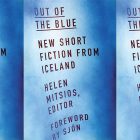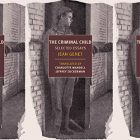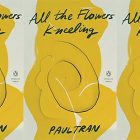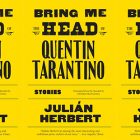In Bookstores Near You
William Wenthe’s latest collection, God’s Foolishness (winner of the L.E. Phillabaum Poetry Award with LSU Press), begins in mid-August, weighted with back to school and the anticipation for new opportunities . . . but also the dissatisfaction of unfulfilled goals. The first poem, “The Call,” depicts the autumnal return of a night owl who haunts the speaker’s neighborhood, asking every year, “What’s your name?” as if mimicking Emily Dickinson’s question, “Who are you? Are you–Nobody–too?”
Which is the perfect opening for a collection filled with middle age–that time when we’re more likely to proffer questions rather than solutions, to contemplate how we as individuals have not lived as we expected rather than obsessing about how the world at large is not what it should be. Here, middle age means to “know a little something / about a place I’m arriving, as if new born / but with a kind of memory.” It’s haunted always by déjà vu. In “When the Circus Comes,” for example, the speaker interprets the elephant’s head swinging from side to side, her forefeet moving “like an old soft-shoe” dance, as joy at his and his daughter’s gaze even as he remembers learning from a movie that “this dance” is a sign of “confinement, boredom–a kind of psychosis.” And the reader must wonder if this dance, this psychosis, refers to the elephant’s body language or our insistence that every incident in the world is a jubilant celebration of us. An insistence–a psychosis–that will eventually fail us.
Middle age is echoed in the hagfish’s knowledge that despite its millions of years of existence, it will “leave but a single fossil behind.” Or: the delivery man, arrested for public intoxication after drinking his Budweiser load, who has stopped believing the story he always told himself: “that a steady job would make him a steady man.” In “A Lesser Story,” Jesus himself, executed in his thirties, “might have felt, beneath the blood / inflicted by whips, the seep of [his] own, / self-generated, sweat of unworthiness.” Halfway finished with our lives, ambition has weakened to the degree that all we ask is that the single moment when we acted–when we passionately greeted love, kissed him or her before a crowd, ending with great applause–to “count for something / against all the moments [we] let go.”
The collection asks many compelling questions: “But tell me, is that grounds for prosecution?” “Would I feel this way if I’d gone a day without food?” “Where is the lie / in the story . . . if it brings you back / to what once was true?” “Are we ‘making sex’ or just ‘having love’?” While the “poet” here attempts to witness or chronicle the darker events of life, to acknowledge the unraveling of the youthful fairy tales we tell ourselves, it is a little girl, the daughter who makes sporadic appearances throughout the collection, that reminds us, and Wenthe, that questions are, perhaps, not meant to be answered, stories not meant to end: “[T]hey’re more about the wishing to arrive.” Ultimately, keeping watch in this world, witnessing “something needing to be saved, / and someone trying to save it” might really be the story of something trying to be saved and us needing to save it.
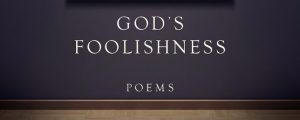
William Wenthe
God’s Foolishness.
Baton Rouge, Louisiana: LSU Press, 2016.
96 pp, $17.95
Footage by BLK Productions, Penney Douglas, Al Ibrahim, Isabel, Danielle Lima, Gabriella Murillo, and Jessie Valverde. Music from Gleason, by Dan Romer & Saul Simon MacWilliams.
